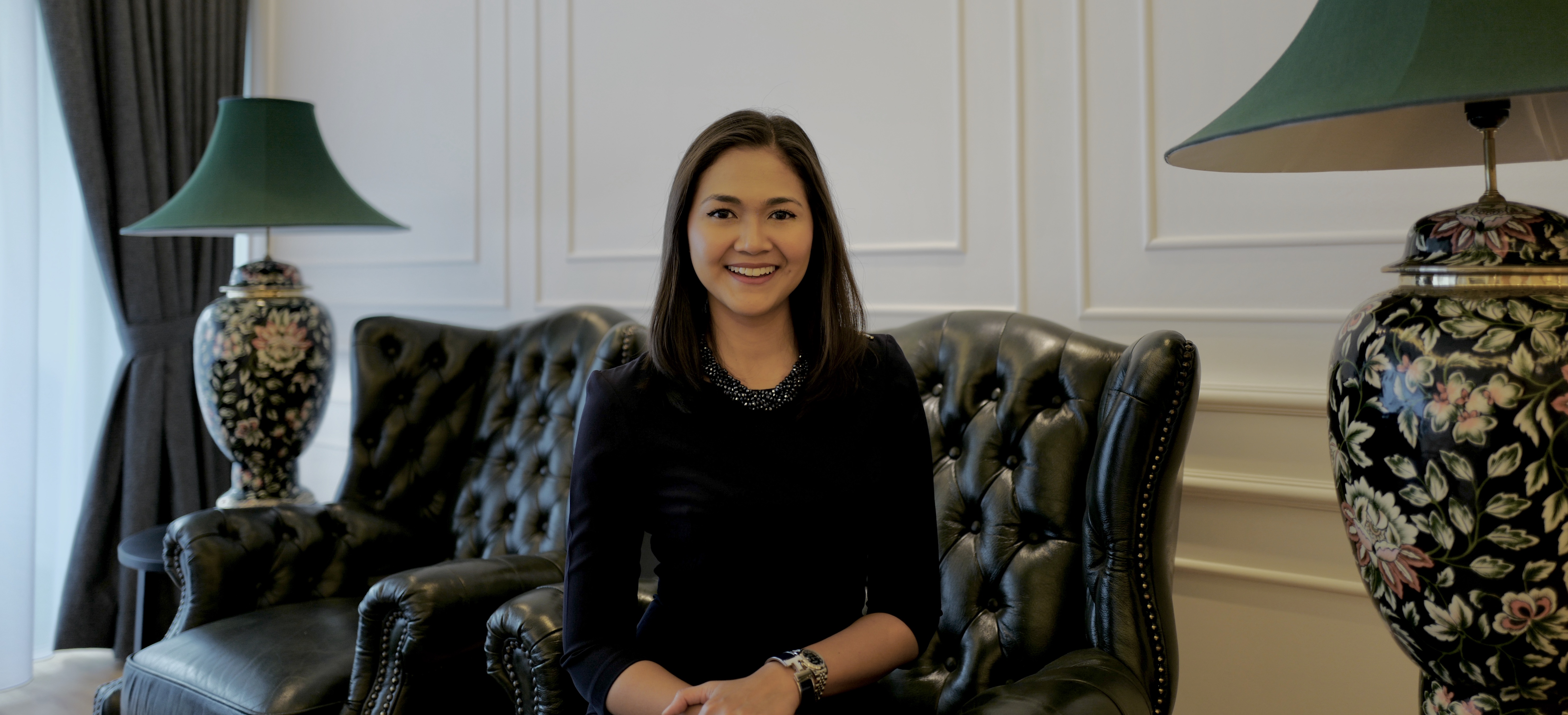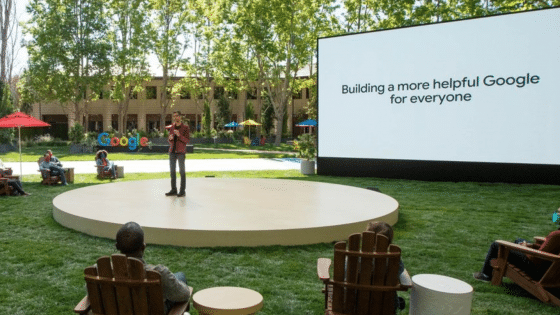Where nearly every aspect of the industry is being disrupted by the current technological revolution, it has rendered certain skills that were relevant in the past, irrelevant for the future. Digital transformation is no longer a choice. Recognising the need for legal skills to constantly be up to date, Puteri Sofia Amirnuddin ensures that she is proactive in innovating her teaching methods to equip her students with skills for the technology-enhanced future world of work.
Armed with her V.I.C.T.O.R.Y. Springboard, Senior Law Lecturer, Programme Director and Chief Projects Officer for CIR⁴I, Puteri Sofia Amirnuddin is relentless in her pursuit of her dreams and passion in her personal and professional spheres. She believes that the V.I.C.T.O.R.Y. springboard: Vision, Inspiration, Creating own opportunities, ability to Trust, being Optimistic, Resilient and Yearning to excel, would serve an impetus to propel anyone towards the direction of their dreams, or to endure challenging times. I managed to get hold of her for a few hours to get more of these out of her.
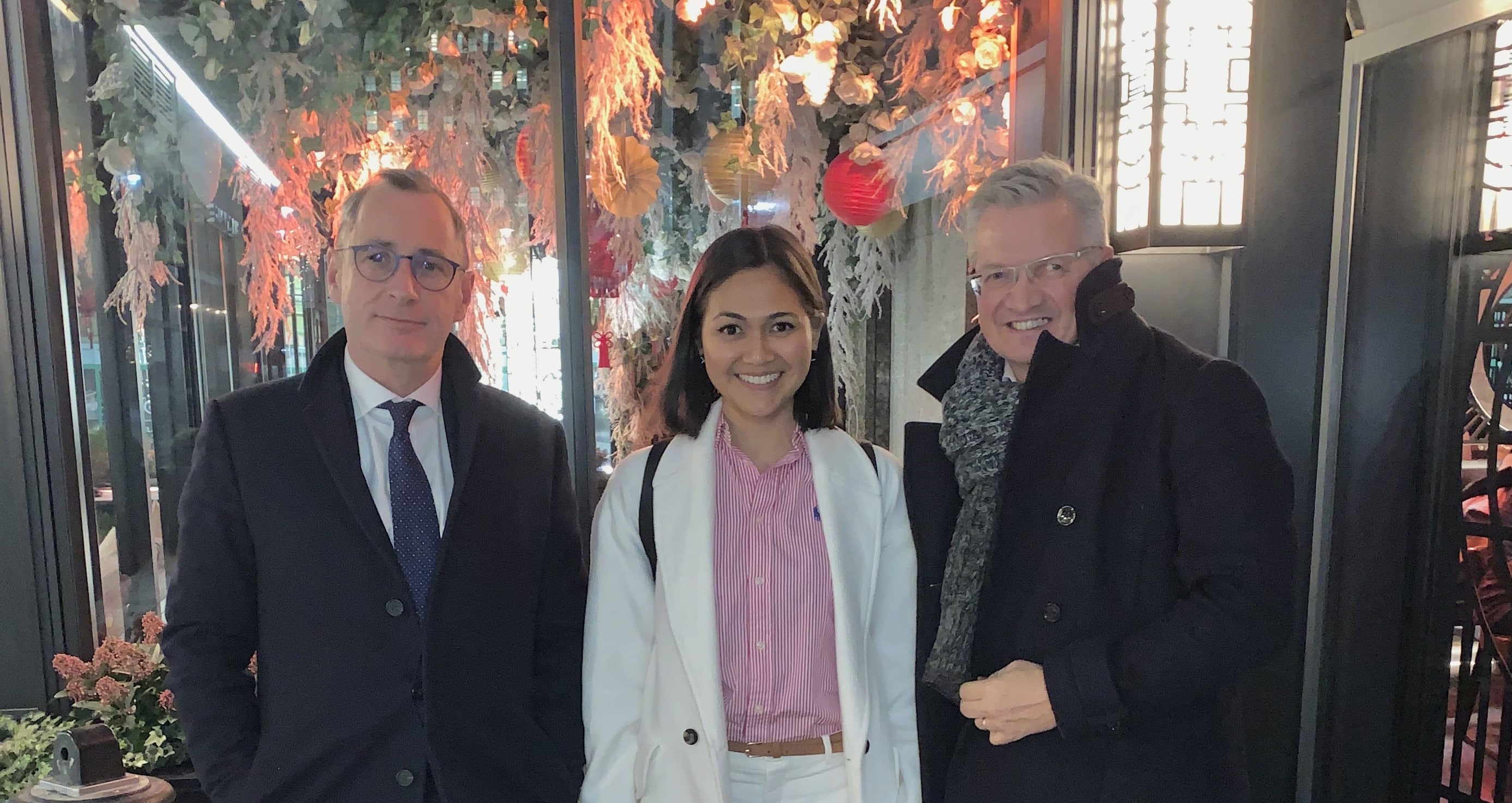
You’re so enthusiastic when it comes to digital and data. We want to know more about it and why both are making you so excited. First things first though, who is Puteri Sofia?
Puteri Sofia is a product of meticulous planning by my parents. I was their first born and just before I started school, my parents bought a house in Subang Jaya, which was a walking distance from school, to ensure that we had no reason to skip school. After my SPM (the Malaysian O-level equivalent), I was immediately registered to do my South American Matriculation at Taylors College. I went on to graduate with a Bachelor of Laws from the University of Tasmania, Australia in 2008. After that I completed my Masters of Law at Monash University, Australia. Every moment was carefully planned. I was not spared any time to idle. So, until today, I learn to make every day matter.
What makes you want to study law in the first place?
As a child, I used to be fascinated with my late grandfather’s law library at his home office in Alor Setar, Kedah. He studied law in London in the early 1960s and was called to the Bar in 1963. When he returned to Kedah, he served as Magistrate, Deputy Public Prosecutor and State Legal Adviser for Kedah and Perlis before he retired in 1976. He then served as the Chairman, Board of Detainees in Penang for two terms.
Each time my family returned to Alor Setar to celebrate Eid, I would spend time at his home office flipping through the law journals and encyclopaedias and sitting at his desk imagining myself as a lawyer. My parents further reinforced my dreams by helping me map out my educational journey to get there. I was so into my dream that I am tickled as I remember what I penned in my classmate’s yearbook way back in 1996, “if you need legal advice in 10 years, look me up”!
Since my younger sister and I were the only grandchildren who studied law, I inherited his barrister’s wig and his black robe. The fact that my grandfather’s legacy was handed down to me further motivated me to stay the course. I’m sure he would have been proud that when I was called to the Bar in 2011, I donned the same robe that he wore when he was called to the Bar two generations back!
When you say learning law isn’t boring, how do you actually back that up?
Statistically, law may be one of the hardest disciplines but it is far from boring! How could it be, when law revolves around our daily lives? Anything we do, touch and see has elements of law. It stimulates our mind to constantly think about how we perceive things and it makes us analyse things in greater detail. It keeps us from spreading fake news because whatever we say must be backed by facts and evidence.
Studying law is a form of art – it exhibits creative power, provokes imagination and promotes empowerment. What is law if not the art of advocacy, persuasion and critical thinking? It really is a fascinating subject.
But of course, because of the complexities of cases and disputes, and the fact that we are governed by the law and its precedence, many lawyers tend to be rigid in their thinking. To break this paradigm, in teaching law, I try to stimulate the students’ minds through creative-thinking, by challenging them to tread beyond their comfort zones to arrive at a particular solution, instead of regurgitating the law. Hence the introduction of Augmented Reality (AR) in the classroom to empower students to spark innovative solutions from outside the classroom.
I am also mindful of the sea of change sweeping the legal profession. With the existence of artificial intelligence, there is a growing gap between emerging technologies and the law. Hence the need to cultivate innovative thinking to enable the students to be better equipped to address this gap. Towards, this end, whilst they are still at law school, I provide them with a learning environment where they feel safe to explore various solutions, ideas and technologies for them to create an impact when they face the real world.
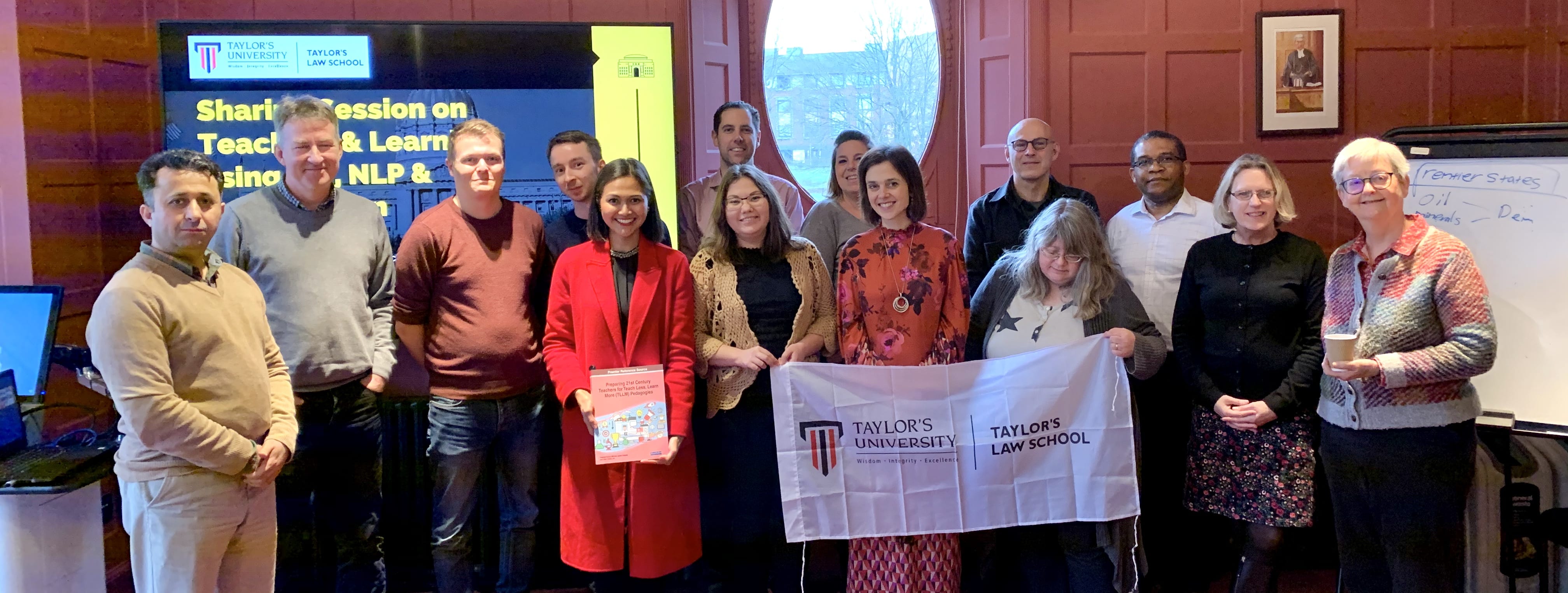
Now, let’s get into the story of digital and data. Can you share with us why you are so pumped up about those stuff?
I had always been fascinated with digital technology ever since I was in school. I remember how ecstatic I was when my father gave me my first ever Personal Digital Assistant (PDA) after I completed my SPM. I learnt how to appreciate the impact of technology in facilitating my daily life even with just an on-line dictionary. I could feel there was more to it than that and couldn’t stop thinking about it.
When I went on to study law at University of Tasmania, that idea kept haunting me. As much as I enjoyed the lectures, discussions and interactions, I couldn’t take my mind off thinking how technology could be applied to facilitate my studies and even the legal industry.
Imagine my delight when I joined Taylor’s University, where continuous learning is a way of life here. I would say that I experienced a steep learning curve from day one. There was always something new being introduced and all staff were required to attend one training after another…. and still are. I was constantly feeling stimulated with new portfolios, new processes and new challenges. At Taylor’s we were given the freedom to explore and innovate. I still recall the starting point of something bold – an answer to the call for the e-learning grant by the INTELLECT Department at Taylor’s University in 2017. That challenged me to deepen my research on introducing Augmented Reality (AR) in teaching law. It had its share of stumbling blocks and scepticism but reverting to my V.I.C.T.O.R.Y. springboard, I only saw obstacles as challenges. The V.I.C.T.O.R.Y. is made sweeter because of the trust and support from my supervisors and the management.
As is always the case when introducing something new, the responses on whether AR could work for the law discipline were not that convincing. Although there were studies to indicate that AR was widely used in the field of medicine, engineering, automotive and architecture, there was hardly any on how AR could be applied in law modules.
However, something in me saw the potential of integrating digital technology into law. My first attempt was rather disappointing as the use of AR did not work as positively as I had hoped. Students were perplexed with the use of AR implemented in the classroom. That didn’t stop me from exploring why. I created a survey to gather data from the students on their perspectives in learning law using AR. I studied their responses and that gave me a better understanding of their concerns.
In the following semester, after re-strategizing my approach in teaching law using AR, I got the thumbs up from my students, testimony that AR can be applied in legal education. V.I.C.T.O.R.Y!
Now, in addition to the use of AR, I also introduced Neuro-Linguistic Programming and Gamification into various law modules to incorporate relevant life-skills, soft-skills, digital skills and innovation into students’ learning.
Apart from teaching, I also enjoy doing research, writing articles for publication and contributing book chapters. I believe that it is very important for academics to keep updating the existing literature through research and publish their findings. From my experience, data is the most valuable resource for researchers. The quote “data is to the information age as oil is to the industrial age” aptly describes its importance. Data is not only a new commodity, but can serve as a lucrative tool for organizations. Used correctly, it can enhance productivity, extend market reach and reduce operational costs.
Any organization which has access to data is always a step above in their game, leveraging on our reliance on technology. Whatever we ‘click’ generates data. Big companies such as Google, Amazon, Apple, Facebook, Netflix and Microsoft have already incorporated artificial intelligence techniques in their processes such as machine learning to extract valuable information from data left behind by users’ digital footprint. This is another area that fascinated me – the interplay of data in a world that is changing so rapidly to the extent that it has resulted in a booming digital economy.
On the down side, there are rising concerns on how the use of data by big tech giants can alter the nature of competition, and even stifle competition. It is worrying when dominant organizations take advantage of its position to eliminate existing rivals or create barriers to entry for new start-ups. We need healthy competition to provide consumers with a variety of options and best possible prices. Hence the reason for my interest in digitalization as it relates to my research interest in Competition Law and Disruptive Innovation.
How do you describe your journey as a law lecturer so far?
It takes two to tango. As a lecturer, I was in search of growth and Taylors University provided fertile grounds. I was able to align my vision with that of the University, and that worked well for both parties.
I cannot emphasize enough the need to have a vision because that was the first step that propelled me forward. I was inspired by my vision and when that golden window of opportunity opened, I was prepared to make that jump.(Note the subtle V.I.C.) Apparently, that one opening had created a domino effect – resulting in various internal and external recognition with regard to the innovative pedagogies implemented in teaching law. In 2017, I became the first recipient in the history of Taylor’s Law School to receive the Exemplary Meritorious Award Staff (‘EMAS’ Award). I also received the Gold Award and Most Innovative Award from University of Malaya in 2017; the Gold Award in IUCEL Conferences in 2018 and 2019; and the President’s Award for Transformative Teaching and Learning from the Vice-Chancellor and President of Taylor’s University.
Once you have trust in yourself and the system, you become optimistic about the path forward. Any obstacle is just a challenge and with challenge, your resilience grows. As you yearn for excellence, (Note T.O.R.Y.) you keep giving your best over and over again. Just recently, my project on Redesigning Legal Assessment with Augmented Reality and Gamification was shortlisted as the top 12% among the 1,500 applicants worldwide, for the Wharton-QS Reimagine Education Awards 2020.
Law is far from boring. Learning law stimulates the mind. Teaching law sparks the imagination.
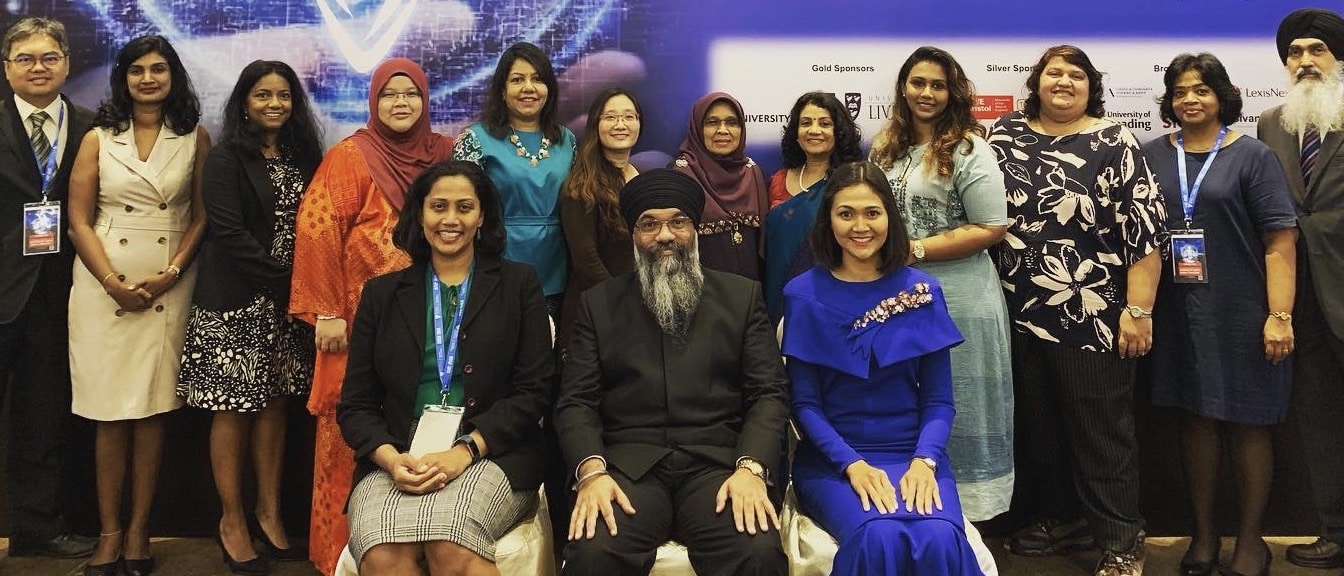
Do you believe online teaching/lecturing works?
I truly believe that when we put our minds into something, anything can be done no matter how impossible it might seem at first. When dealing with a new initiative, everyone has to play their part and keep an open mind. The key is to consciously overcome the resilience and unfounded fears and move out from the comfort zone. Only then can you learn and grow.
Following the SARS pandemic in 2003, Taylor’s University was impacted when classes had to be cancelled. As a preventive measure to safeguard the students’ health and minimise future disruptions, Taylors University made a strategic decision to invest in online facilities and training to equip all lecturers with skills to deliver lessons online. These facilities were utilized when Malaysia was hit by the haze and events that necessitated campus closure. Riding on this initiative, Taylor’s Law School had even allocated one week in each semester for blended learning where all teaching and learning would take place online for the entire week.
The lecturers had to improvise their course content, learn new tools and applications, explore new resources and go with the flow.
Online teaching offers versatility, convenience, enhanced learning and interaction and of course, reaches out to more audiences. Yes, I believe in online teaching and I stand witness that online teaching works!
In your opinion, what does it take actually to make it impactful?
Let me share with you a secret. When we gamify our lessons, learning becomes interactive, engaging and impactful.
Gamification does not mean designing video games for students to play at home. It has nothing to do with PlayStation or the use of game consoles. It is about incorporating game mechanics into our lessons. For example, when people play any type of games, they want to be immersed in the storyline and gather as many points possible and ultimately win at the end of the game. The same concept applies to gamifying learning.
What I did was introduce a point system in my online classes where the students earn points by participating and asking questions. By gamifying the lessons, students will become more interactive because they know they will be rewarded for their active contributions in class. They will also be able to keep track of their own performance in class throughout the semester. At the end of the semester, the students will be able to see their overall points acquired and they will also be awarded for their performance in my class.
To make it even more impactful, I would secure awards in the form of sponsored merchandises. In this challenging time, I have approached the Malaysia Competition Commission (‘MyCC’) to offer internship opportunities in 2021 for the top 5 performers in my class. The MyCC, being one of Taylor’s University’s MOU partners, responded positively to the innovative approach to teach law using AR and gamification. The MyCC provides an example how a regulator can take cognizance of the importance of modern learning which will produce quality graduates.
How are you thriving in this new normal at the moment?
I wouldn’t say that I am thriving but I am working very hard to turn this COVID-19 crisis into an opportunity. This is the prime time where we can adapt cultural change, innovate and unbox education to unlearn what we know and relearn new things. COVID-19 pandemic has accelerated the digital transformation of higher education and hence educators must utilize this time to embrace change, reshape their interests, skills and knowledge to adapt to the new future.
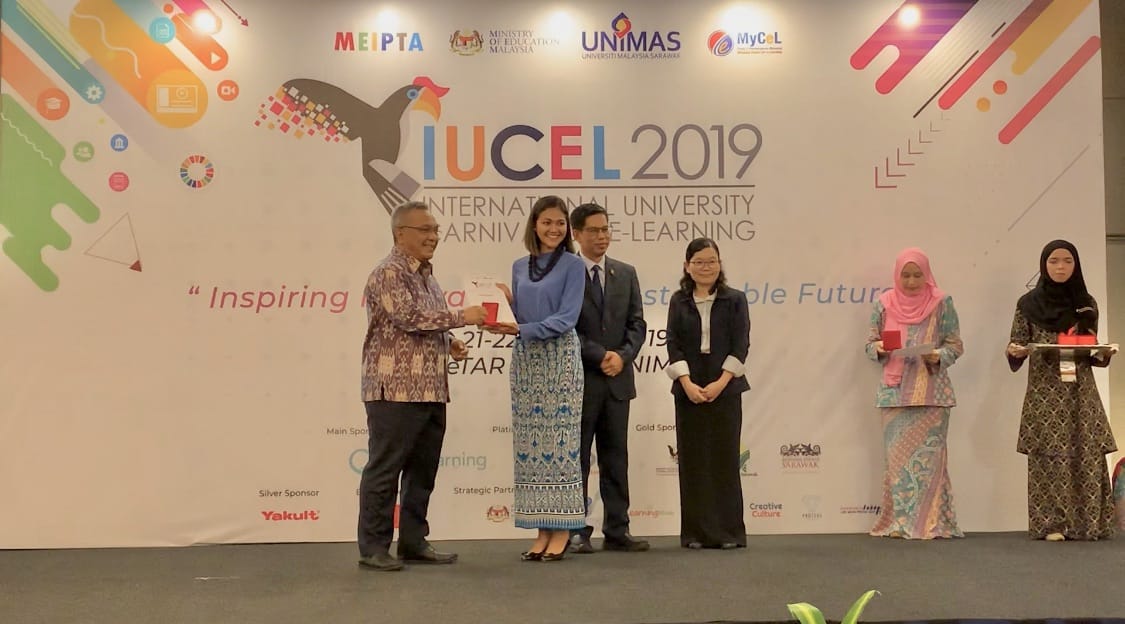
What was the biggest challenge you faced when lecturing online?
I discovered that when it comes to online learning, there is no “one-size that fits all”. Despite the gamifying approach that I embedded into online learning, it impacted different students and different cohorts differently. In the last semester, where we had to suddenly shift to online learning in an ad-hoc manner, students were appreciative of the teaching styles that I implemented in class. They were actively engaged in discussion, well-prepared for class and looked forward to the end of the semester for the results of the top 5 best performers in my classes.
However, as much as I wanted to help them, there were also some students who were not enthusiastic, did not want to participate and questioned the innovative approach to learn law. This is definitely the biggest challenge that I encountered when it comes to lecturing online. But what I have learned from this experience is that for every innovative approach that I introduce, I will have to explain the bigger picture to the students on how it will assist students in the future.
We know that you’ve been very active on social media especially on LinkedIn and Facebook. Is this one of your strategies to build your personal branding?
My personal branding is being who I am. My presence in social media is just to share my experience and results of my “experiments” with readers on LinkedIn and Facebook. During my stint as a Visiting Scholar at University of Reading and University of Leeds in January 2020, I was surprised when I received a statistical report from LinkedIn that my followers had increased in that duration. I also noticed that my posts relating to my experiences abroad had been read by hundreds of readers.
When I returned to Malaysia, it took me by surprise when Nur Farisya Shukor, a LinkedIn influencer specializing in women empowerment, requested for an interview on my journey as a law lecturer. That made me realize there are readers who want to read a story that is authentic and relatable to inspire them. Hence, a call to make me keep sharing insights on my journey in life. I did not plan to build a personal branding but it happened. So, for those who intend to do so, my advice is to begin with self-exploration to find the one thing that represents you. From there, you can write a story that provides value to the readers.
Social media is one story. Besides that, what else do you think a lecturer should do to build their personal branding and be the authority in their subject matter?
I personally think that it is important to have a good support system at work, namely, your colleagues, your superiors, your network and the other departments, in short, to work as a team. I am thankful to have the support from the Deputy Vice Chancellor (Prof. Dr Pradeep Nair), the Executive Dean of Faculty of Business & Law (Prof. Dr. Khong Kok Wei), the Head of Taylor’s Law School (Dr. Harmahinder Singh), Dr. Jason Turner, Associate Prof. Dr. Saeed Pahlevan Sharif, Associate Prof. Dr. Kandappan Subramanian, Dr. Tamara Joan Duraisingam, Dr. A Vijayalaksmi Venugopal, Dr. Ambikai S. Thuraisingam, Saratha Muniandy, Suzanna Abdul Hadi and all of my colleagues at Taylor’s University. When we work in silos, no matter how much contribution we provide, we can never reap the benefits of a synergy.
As a start, a lecturer can start collaborating on research with colleagues from a different faculty. The inter-faculty or inter-discipline collaborations are enriching and promising as it can provide more doors of opportunities to deepen the ties with other researchers within the faculty and beyond. The next step would then be to embark on a more challenging research project with lecturers from another university. Alternatively, there is more potential for researchers to enhance their visibility by becoming a member of a research centre.
At Taylor’s University, there is new research centre called ‘Centre of Industrial Revolution and Innovation’ (CIR⁴I) which draws membership from researchers around the world. As a member of CIR⁴I, lecturers will have access to webinars and various local and international research projects. They will also receive opportunities for their research work to be more prominent at the international level. CIR⁴I also provide consultancy services and accept research grants from various organizations for the purpose of producing reports or analysis based on the data provided by the company in enhancing their business operations. The data will be analysed by local and international experts who are already part of CIR⁴I. As a member of a research centre such as CIR⁴I, you can experience a variety of benefits as your work and profile will become more visible – opening more doors of opportunities for you to accelerate to greater heights. The more we collaborate, the more we write, the more authoritative we can be on that subject matter. These are the profound discoveries that I picked up throughout my career as an academic and a researcher.
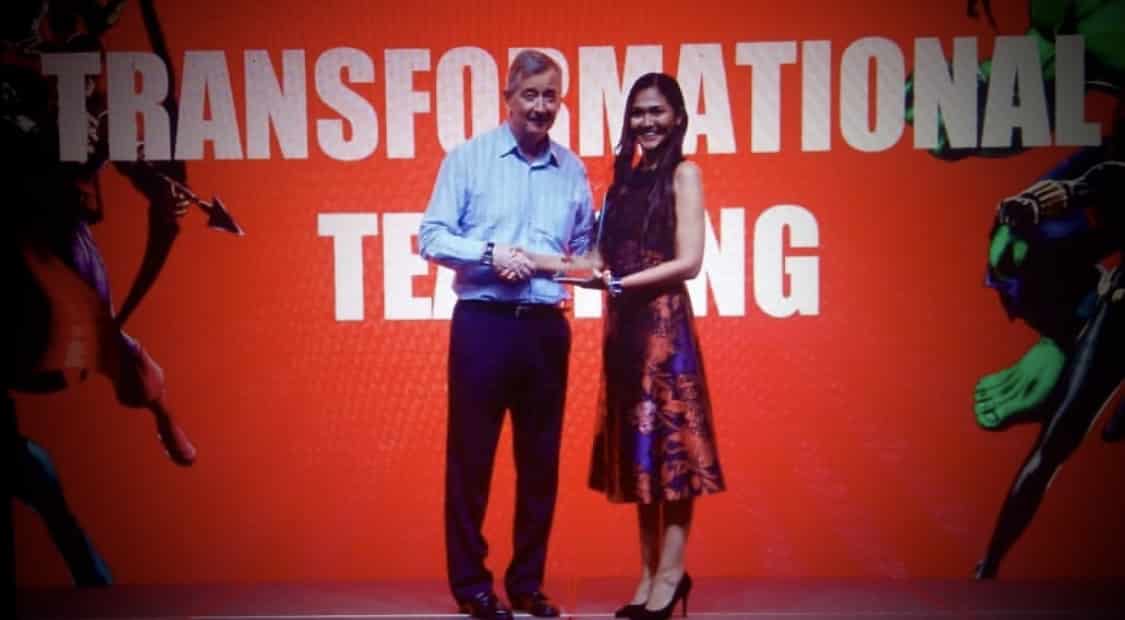
How to contact you Puteri Sofia?
I always look forward to building new connections and collaborations with anyone around the world. Feel free to reach out to me on LinkedIn.











